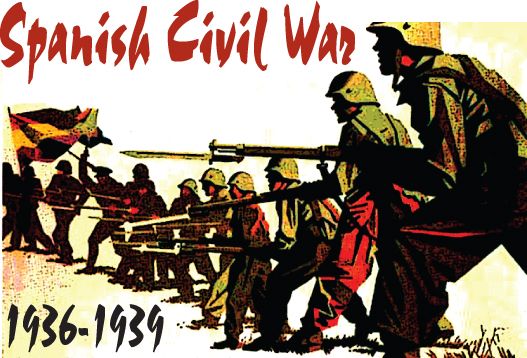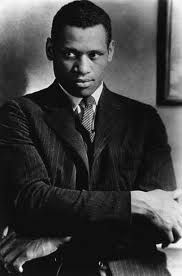Crossposted at Daily Kos
|
The story continues below the fold…

Jul 29 2011
Crossposted at Daily Kos
|
The story continues below the fold…
Jul 27 2011
Crossposted at Daily Kos
Part II of this diary will be posted on Wednesday, July 27th.

In July 1936, the Spanish Army staged a military uprising against the democratically-elected Republican government of Spain, which had been in power for less than six months. The revolt started in the Protectorate of Morocco under the leadership of General Francisco Franco and by the next day, had spread to the mainland. The rebels had badly miscalculated and not anticipated that several army units would side with the government nor expected that the working classes in towns and cities would be quickly mobilized and armed in a popular resistance against the rebellion. In what would become a dress rehearsal for World War II, the struggle that ensued between Republican and Nationalist forces to determine the future direction of the country would rage on for the next three years.
In 1937, Bill Bailey (a son of Irish immigrants to America) wrote a letter from Spain to his mother in New Jersey. Unbeknownst to her and defying a travel embargo imposed by his own government, he had secretly traveled to that country to become one of almost 2,800 American volunteers to eventually fight on the Republican side in a brutal war against the defenders of authoritarian conservatism
|
Jan 23 2011
Crossposted at Daily Kos and The Stars Hollow Gazette

On January 23, 1976, one of the greatest Americans of the twentieth century died a nearly forgotten man in self-imposed seclusion in Philadelphia, Pennsylvania.
Over the last three decades or so, you rarely, if ever, hear his name mentioned in the popular media. Once every few years, you might hear someone on PBS or C-Span remember him fondly and explain as to why he was one of the more important figures of the past century. In many respects, he had as much moral authority as Nelson Mandela, Martin Luther King, Jr. and Rosa Parks; he was as politically active as Dick Gregory, Harry Belafonte, John Lewis, and Randall Robinson; and, as befits many men and women motivated by moral considerations, he conducted himself with great dignity. For much of his life, not surprisingly and not unlike many of his worthy successors, he was marginalized and shunned by the political establishment of his time — until events validated their ‘radical’ beliefs and resurrected their reputations.
Throughout his life, few principled men of his caliber paid as high a price and for as long a period as he did for his political beliefs.
Feb 28 2008
Crossposted at Daily Kos and also at Truth & Progress
Lost in the hoopla and frenzy of the 2008 Presidential Campaign over the past couple of weeks was an overlooked (though important) anniversary in the Peoples Republic of China. In February 1978 — a year or so after Chairman Mao Zedong’s death — the Chinese communist government lifted a ban on the writings of three of the greatest minds the world has ever seen.
This was a critical development for from their graves, three men long dead — Aristotle, William Shakespeare, and Charles Dickens — were finally free to peddle their ‘subversive’ ideas about the complexity of the human condition.
Aristotle, William Shakespeare, and Charles Dickens
Jan 25 2008
(I had problems with HTML tags last night. Hence the delay in posting this — JnH)
Crossposted at Daily Kos and Truth & Progress
On this day, January 23, 1976, one of the greatest Americans of the twentieth century died a nearly forgotten man in self-imposed seclusion in Philadelphia, Pennsylvania.
Over the last three decades or so, you rarely, if ever, hear his name mentioned in the popular media. Once every few years, you might hear someone on PBS or C-Span remember him fondly and explain as to why he was one of the more important figures of the past century. In many respects, he had as much moral authority as Nelson Mandela, Martin Luther King, Jr. and Rosa Parks; he was as politically active as Dick Gregory, Harry Belafonte, John Lewis, and Randall Robinson; and, as befits many men and women motivated by moral considerations, he conducted himself with great dignity. For much of his life, not surprisingly and not unlike many of his worthy successors, he was marginalized and shunned by the political establishment of his time — until events validated their ‘radical’ beliefs and resurrected their reputations.
What did this man do that propel so many to ignore his numerous contributions and conveniently forget the crucial role he played in our culture and politics? Or, a few others to remember him with deep reverence and respect?